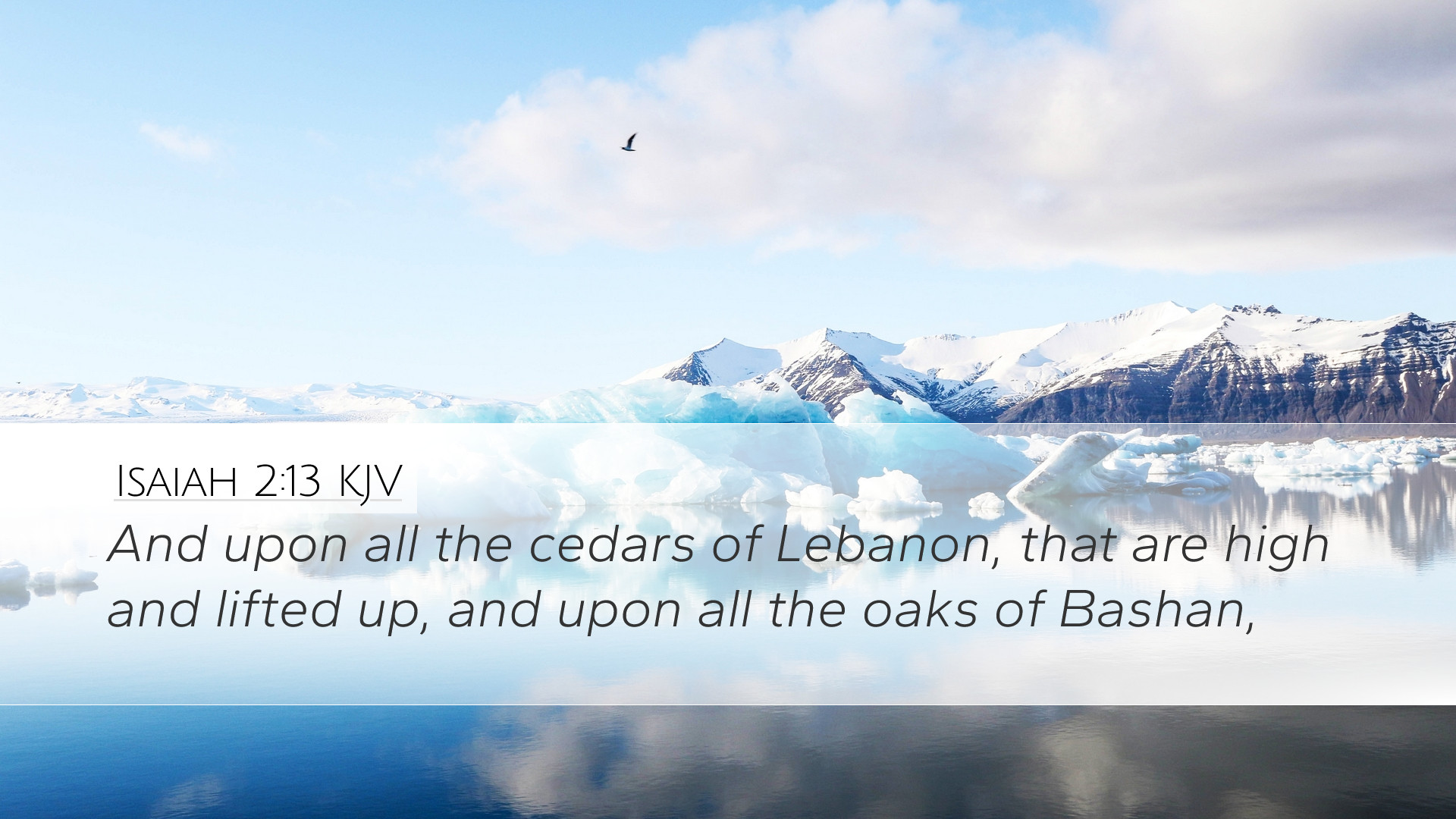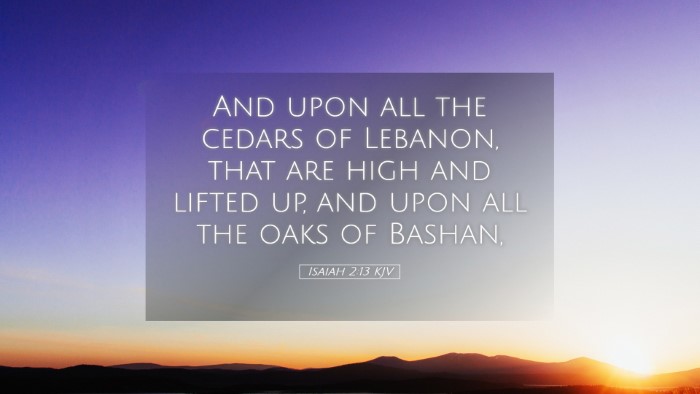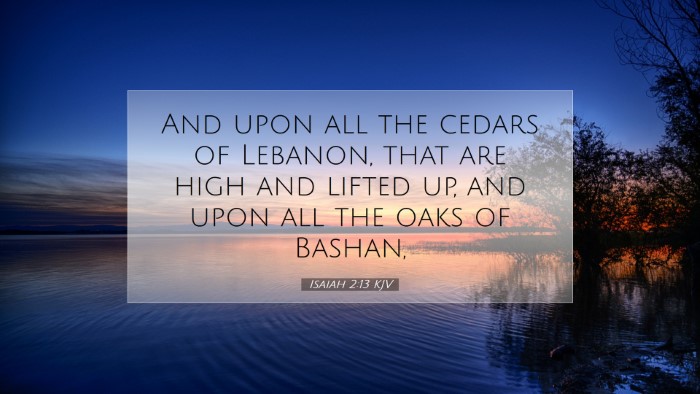The verse in question comes during a prophetic discourse that emphasizes the judgment and sovereignty of God over the nations and their proud structures. Here, Isaiah employs vivid imagery to convey a profound theological truth regarding humankind's arrogance and the ultimate supremacy of God.
Contextual Insights
Isaiah’s prophecies often occur in the context of Israel's relationship with surrounding nations and their reliance on foreign powers. In chapter 2, Isaiah articulates a vision for the last days, where the mountains of the Lord's house will be exalted. This verse serves as a poignant reminder of the futility of human pride symbolized by the cedars and oaks, trees that were deemed both beautiful and sturdy in ancient Near Eastern culture.
The Symbolism of Cedars and Oaks
"Cedars of Lebanon" were a symbol of strength and majesty, often used in the construction of palaces and temples. The mention of these cedars highlights the heights of human achievement and ambition. The "oaks of Bashan" refers to trees known for their size and durability, further emphasizing human pride in worldly power and permanence. Together, these references illustrate the inflated self-regard of nations, which God ultimately will humble.
Theological Reflections
- God's Sovereignty Over Creation: This verse is a reminder that no matter how high and mighty human accomplishments may seem, they are subject to God’s authority. As Matthew Henry notes, "God will bring low those that are high." The imagery serves as a metaphor for all the lofty ambitions of kingdoms, empires, and even individuals.
- The Vanity of Earthly Pride: Albert Barnes emphasizes that wealth and power, symbolized by these mighty trees, are fleeting and will not withstand God's judgment. The passage serves as a warning against the hubris that often accompanies prosperity.
- The Assurance of Divine Justice: Adam Clarke highlights the assurance that God's justice will prevail; no nation or individual can stand against the divine decree. The use of the cedars and oaks might imply that their glory will not last—they will be brought down when God’s wrath is revealed.
Exegesis and Application for Today
For contemporary readers—pastors, theologians, and laypeople—the exhortation found in Isaiah 2:13 serves as a call to humility. In a world where status, success, and self-reliance are often prized, this verse reminds believers of the transitory nature of human endeavor.
Application for Leadership: Church leaders are encouraged to reflect on their motives and actions with humility, recognizing that true leadership is grounded in servitude and submission to God's will rather than in self-aggrandizement.
Application for Personal Faith: Individuals are invited to consider their own spiritual pride and the ways they may inadvertently elevate personal or collective achievements above their reliance on God. The study of this verse invites a deeper examination of one’s own heart and priorities in the light of God’s sovereignty.
Conclusion
Isaiah 2:13 presents a compelling image of God's authority over everything that humankind reveres. It challenges believers to look beyond the surface of worldly glory and recognizes the ultimate reality of God’s judgment. As followers of Christ, the call is to live humbly, acknowledging our dependence on God, and avoiding the pride that often accompanies success and stature.


